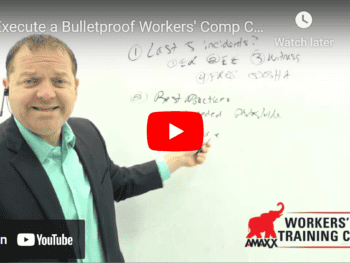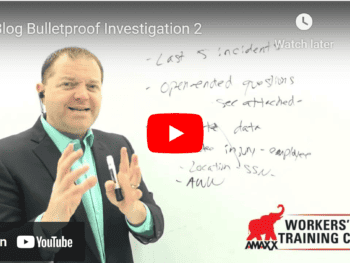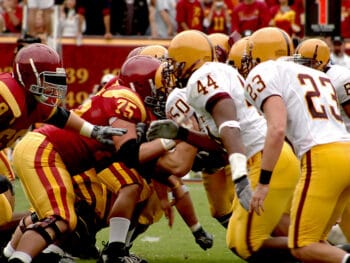The need to use an interpreter in workers’ comp has increased with the changing dynamics of the American workforce including those individuals who do not fluently speak English – whether it be as a primary language, limited use or no working knowledge at all. The use of an effective translator to assist when communicating with non-English speaking people during the claims investigation process is beneficial for improved claim outcomes.
English as a Primary Language – A Changing Dynamic
There is no “official language” in the United States. Although roughly 30 states have enacted laws making English (American English) the official language for business purposes, our country remains a melting pot filled with numerous languages and dialectics. Recent estimates indicate about 350 languages are spoken in the US. This creates many challenges when a work injury occurs. Members of the claims management team and other interested stakeholders need to be aware of these issues and use interpreters to make sure their claims are properly investigated, and the information is received accurately.
Click Link to Access Free PDF Download
“13 Research Studies to Prove Value of Return-to-Work Program & Gain Stakeholder Buy-In”
Goals of Using an Effective Interpreter in Workers’ Comp
Using an interpreter is a relationship where all parties need to be on equal footing and involvement. It is important to set the right tone at the beginning of the process.
- Get to know the interpreter. Understand how they interpret – simultaneous or consecutive. When using consecutive translation, get a good idea of the length of sentences or phrases one should use. Patience is key.
- Set expectations for best practices. Understand a good interpreter in workers’ comp is not an advocate for either party. They should never be used to add persuasion or in a coercive manner.
- Set timelines for translation. Translation services are taxing physically and mentally. A good interpreter will need frequent breaks. Understand these limitations and respect them.
Signs of a Good Interpreter
Finding a good interpreter in workers’ comp can be a challenge even if it is a language that is common. Because work comp claims involve legal matters, it is important to use a court certified interpreter in all instances. This includes translations taking place during recorded statements, witness interviews, depositions, independent medical examinations/independent vocational evaluations and hearings. Characteristics of a good interpreter will include the following:
- Interpretation of every word: Accuracy is key. When an interpretation is “word for word,” it ensures the information is being relayed completely and avoids issues for appeal.
- Not providing one-word answers when there was clearly a longer answer: When this takes place, it is noteworthy that accuracy is not valued. It may be time to stop what is taking place and locate a new interpreter. This might mean stopping a deposition and re-setting the proceeding. Although there are additional expenses, it will avoid problems down the road.
- No side conversations: It is important that all parties are involved in a conversation and what is being shared by the non-English speaking person is provided to all. In some instances, an interpreter may need to ask a question to clarify a term being used. If this is the case, it is important for the interpreter to note this and translate the “side conversation” completely.
- Be aware of regional dialectics: This is something that should be discussed well in advance of using an interpreter. As is the case in English, words in other languages have different meanings to people in different regions.
Other Barriers and Challenges
It is also important to understand people from other cultures may have misconceptions on the American legal system. Examples of this may come from people who immigrated from oppressive regimes and governments. They may have a distrust of the legal system in the United States based on prior experiences. Other cultures may also view someone with a personal injury differently. Best practices in claims management must include cultural competence. Remember to treat all people with respect and dignity.
Conclusions
While there is an added cost, members of the claims management team cannot avoid the demand to use an interpreter in workers’ comp for an injured worker with limited use of the English language – or none at all. These costs can translate into savings when done correctly. This includes using a qualified court-certified interpreter, getting to know the person and using one in the right (and necessary) circumstances.

Author Michael Stack, CEO Amaxx LLC. He is an expert in workers’ compensation cost containment systems and helps employers reduce their workers’ comp costs by 20% to 50%. He works as a consultant to large and mid-market clients, is a co-author of Your Ultimate Guide To Mastering Workers Comp Costs, a comprehensive step-by-step manual of cost containment strategies based on hands-on field experience, and is founder & lead trainer of Amaxx Workers’ Comp Training Center.
Contact: mstack@reduceyourworkerscomp.com.
Workers’ Comp Roundup Blog: https://blog.reduceyourworkerscomp.com/
©2018 Amaxx LLC. All rights reserved under International Copyright Law.
Do not use this information without independent verification. All state laws vary. You should consult with your insurance broker, attorney, or qualified professional.














